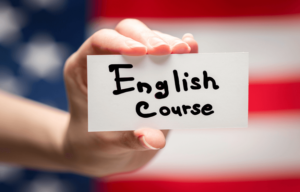Introduction
The Irish system of higher education is a combination of academic achievement and cultural heritage that makes the country stand out among all other countries. Those who seek admission into this nation of enlightenment and possibility find the task of selecting courses equally exciting and nerve-wracking. Setting aside a wide range of courses across multiple disciplines, it’s vital to master this transition with thorough planning and intelligent consideration. In this extensive guide, we are going to unravel five extremely effective strategies that will assist you in selecting the best courses to study in ireland, thus providing you with a holistic and satisfying educational adventure.
Research the universities and colleges
University Rankings and Reputation
As you look for universities in Ireland, take into account how they are perceived in the academic community via their rankings and reputation. Check the global rankings like the QS World University Rankings, Times Higher Education, and Academic Ranking of World Universities (ARWU) to determine their elite status among higher education institutions across the globe. Rankings can help us understand factors such as research output, faculty expertise, student satisfaction, and international reputation.
Facilities and Resources on Campus
The campus environment is a very important part of what makes up your whole educational experience. On the virtual tour or real open days, participants can visit various campus facilities, including libraries, laboratories, sports facilities, student accommodation, and student support services. Tally the number of resources that include research centres, technology facilities, study areas, and student clubs that pertain to the subject of your study.
Assess course content and curriculum.
Compulsory Modules and Electives
Look into the core modules taught in the courses that you are interested in to learn more about the foundational principles that they cover. Consider the worth of these foundation units to your scholarship domain and your future profession. Also, examine the range and extent of the open elective courses that afford you the opportunity the opportunity to choose your studies and gain more insight into your field of expertise.
Practical Learning Opportunities
Choose classes that blend theoretical learning with a practical approach. It can comprise learn-by-doing projects, case studies, simulations, practicals, field trips, or business associations, among others. Outside-the-classroom experiences give you the ability to try out the theoretical knowledge you have, develop problem-solving skills, and gain more insight into real-world situations. See if you can opt for courses that come with internships, work placements, or real industry projects because these projects can fetch you some good prospects and also give you industry insight.
Think of industry partnerships and internship positions
Industry Collaborations
Select research universities that have industry ties and are located in the area you may be interested in. These partnerships can feature activities such as guest lectures with prominent professionals, networking opportunities, the use of modern industry research facilities, and available job vacancies in the concerned industry. Get to know the university’s industry connections using their websites, alumni networks, industry events, and career services.
Internship Programs
Work experience programs are very indispensable for acquiring hands-on skills, developing professional ties, and ensuring seamless entry into the workforce. Ask about the existence of formal internship programs within the field of your selection or via university partnerships. Take into account the degree of consistent support from the college given in obtaining internships, such as resume workshops, interview preparation, and career counselling. A summer internship is a perfect step towards improving your expertise, industry awareness, and competence as a job seeker.
Seek guidance from academic advisors or career counsellors
Academic Advisory Services
A great decision is to use the academic advisory services provided by your university to benefit from the one-on-one advisory on course selection, timelines, credit requirements, and graduation pathways. An academic adviser provides directions on difficult academic choices, brings up interdisciplinary options, and creates a way through which an academic plan is designed to fit your goals and desires.
Career Counselling Support
Furthermore, consult with career advisers who can explore career options with you, devise a job search strategy, give tips on writing your resume and cover letter, and become conversant with interview matters. Counselling services often consist of workshops, lectures, networking events, and employers’ contacts conducted to equip students with skills needed for their career development. Ask for tips and recommendations on your future career paths, skills, self-evaluation, and professional training needs to improve your marketability.
Take into account location, price, and grants
City life and cultural experience
Take the university location as an example of many factors that affect your time as a student. Acquire information about Dublin, Galway, Cork, Limerick, and Waterford to discover the cultural dark, social climate, recreational activities, and quality of life. Assess different things, such as the cost of living, public transportation, where people sleep, the quality of health care, and cultural places, to make sure that you enjoy and have an easy time during your stay.
Education and Scholarship Planning
Have a complex financial plan that covers tuition fees, accommodation expenses, living expenses, travel expenses, and miscellaneous costs. Investigate the research grant programs of universities, governmental agencies, private organizations, and international foundations. Scholarships may be based on merit, need, subject, or country, amongst others, so look up all the possibilities and apply for them most strongly. Creative budgeting, which helps in getting the required scholarship, is the key factor in making education affordable and attainable.
Conclusion:
In a nutshell, the choice of courses of study in Ireland is a multi-layered development of facts, self-reflection, information, and recommendations from the right person. Attending university research, testing the quality of your course materials, reviewing industry partnerships, consulting experienced people, and considering practical considerations make it possible to start a remarkable educational journey. No matter whether you are seeking to pursue masters courses Ireland or an undergraduate program, the advice provided in the above article will make you a wiser student who will align your academic ambitions and career goals.
If you apply yourself wholeheartedly, have the strongest willpower, and let the strategy do the work for you, your educational adventures in Ireland will be simply and exclusively great and will ensure a bright and successful future ahead.


